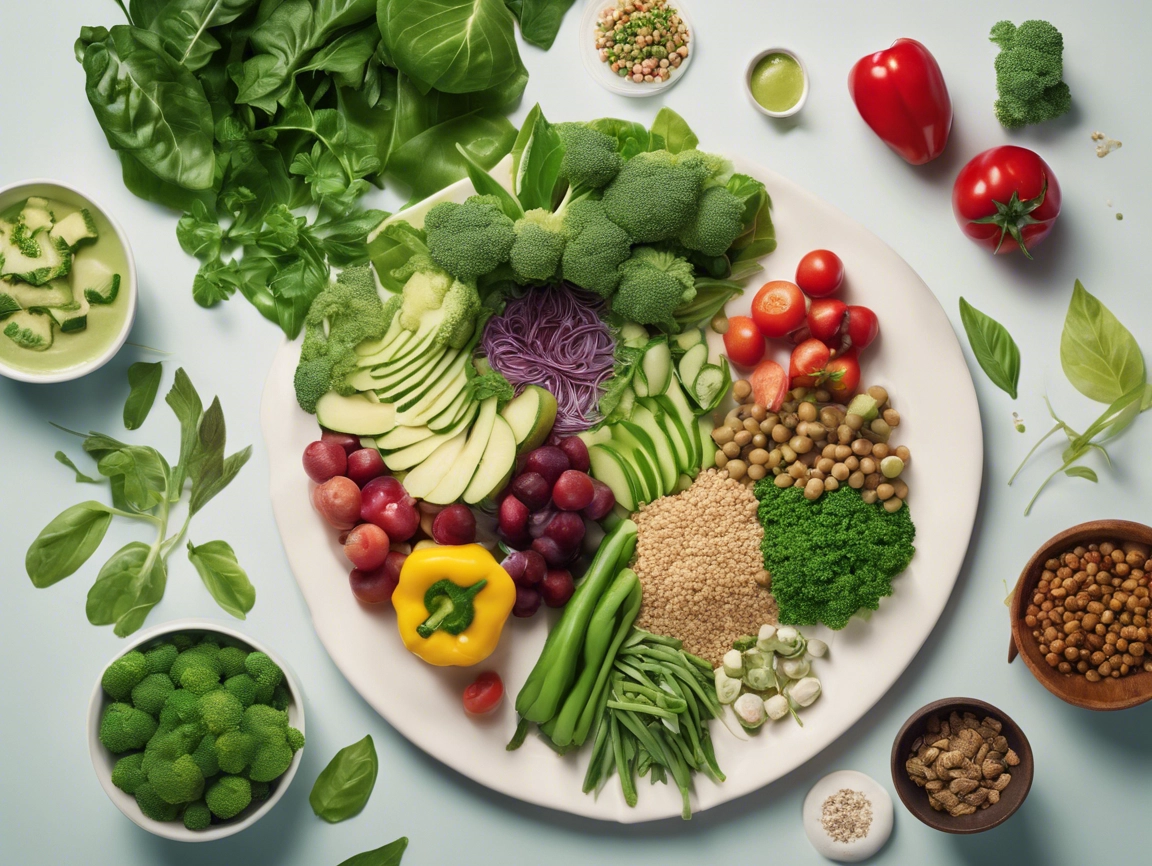In recent years, plant-based diets have surged in popularity, thanks to their numerous health benefits, environmental sustainability, and ethical considerations. However, a cloud of myths and misconceptions often overshadows the reality of plant-based eating. This blog will debunk these myths, provide clarity, and encourage more people to explore a plant-based lifestyle.
What is a Plant-Based Diet?
A plant-based diet emphasizes foods derived from plants. This includes fruits, vegetables, nuts, seeds, oils, whole grains, legumes, and beans. It’s important to note that being plant-based doesn’t necessarily mean you must be vegetarian or vegan. Instead, it focuses on making plants the primary part of your diet, even if you occasionally consume meat or dairy.
Myth 1: Plant-Based Diets Lack Protein
One of the most pervasive myths about plant-based diets is that they lack sufficient protein. This is far from the truth. There are plenty of plant-based protein sources that can easily meet your daily requirements.
Protein-Rich Plant Foods
- Lentils: One cup of cooked lentils packs about 18 grams of protein.
- Chickpeas: A cup of cooked chickpeas provides approximately 15 grams of protein.
- Tofu: Half a cup of tofu offers about 10 grams of protein.
- Quinoa: This nutrient-dense grain contains about 8 grams of protein per cup.
Myth 2: Plant-Based Diets Are Nutritionally Deficient
Another common misconception is that plant-based diets lack essential nutrients like iron, calcium, and vitamin B12. While it is true that some nutrients are more abundant in animal products, a well-planned plant-based diet can provide all the necessary nutrients.
Key Nutrients and Plant Sources
- Iron: Beans, lentils, spinach, and fortified cereals are excellent plant sources of iron. Pairing these with vitamin C-rich foods (like citrus fruits) can enhance iron absorption.
- Calcium: Leafy green vegetables, fortified plant milk, tofu, and almonds are rich in calcium.
- Vitamin B12: This vitamin is primarily found in animal products, so plant-based eaters may need to consume fortified foods or take supplements.
Myth 3: Plant-Based Diets Are Bland and Boring
Contrary to popular belief, plant-based diets can be incredibly diverse and flavorful. With a vast array of fruits, vegetables, grains, legumes, nuts, and seeds, there are endless possibilities for creating delicious and satisfying meals.
Tips for Flavorful Plant-Based Meals
- Spices and Herbs: Use a variety of spices and herbs to enhance the flavor of your dishes. For example, cumin, turmeric, garlic, and basil can transform a simple meal into a gourmet experience.
- Experiment with Cooking Techniques: Try grilling, roasting, steaming, fermenting, and sautéing to bring out different flavors and textures in your plant-based ingredients.
- International Cuisines: Explore recipes from different cultures that traditionally emphasize plant-based foods, such as Indian, Mediterranean, and Middle Eastern cuisines.
Myth 4: Plant-Based Diets Are Expensive
Many people believe that eating a plant-based diet is costly. However, plant-based eating can be very affordable, especially when focusing on whole, unprocessed foods. Staples like rice, beans, lentils, and seasonal vegetables are often cheaper than meat and processed foods.
Budget-Friendly Plant-Based Tips
- Buy in Bulk: Purchase grains, beans, and nuts in bulk to save money.
- Seasonal Produce: Buy fruits and vegetables that are in season for better prices and freshness.
- Meal Planning: Plan your meals and make a shopping list to avoid impulse buys and food waste.
Myth 5: Plant-Based Lifestyle is Not Suitable for Athletes
There is a misconception that plant-based diets cannot support the nutritional needs of athletes. However, many successful athletes thrive on plant-based diets. These diets can provide the necessary nutrients to support high levels of physical activity.
Plant-Based Nutrition for Athletes
- Carbohydrates: Essential for energy, can be found in whole grains, fruits, and vegetables.
- Protein: Necessary for muscle repair and growth, can be sourced from legumes, tofu, tempeh, and protein-rich grains like quinoa.
- Healthy Fats: Important for overall health, found in avocados, nuts, seeds, and olive oil.
Plant-based diets are healthy, sustainable, and versatile. By debunking these common myths, we hope to encourage more people to explore the benefits of plant-based eating. Whether you’re looking to improve your health, reduce your environmental footprint, or simply enjoy a variety of delicious foods, a plant-based diet can be a fulfilling and nutritious choice.
Incorporating more plant-based foods into your diet is not only beneficial for your health but also for the planet. The key is to focus on a balanced and varied intake of whole foods to ensure you get all the necessary nutrients. Embrace the vibrant world of plant-based eating and discover how satisfying and enjoyable it can be.








